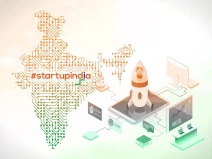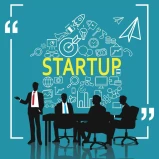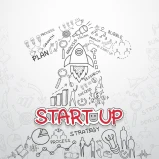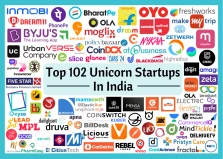
 Dec 29, 2024
Dec 29, 2024
 Medisine
Medisine
Solutions for PhD Graduates in India: Overcoming Career Challenges & Exploring Opportunities
After completing a PhD in any stream in India, there are
several paths you can take depending on your goals, interests, and field of
study:
1. Academic Careers
- Teaching:
Most PhD graduates opt for teaching positions at universities and
colleges. You can become a professor, lecturer, or researcher at higher
education institutions.
- Research
Institutes: Many government-funded and private research institutes,
such as CSIR, DRDO, and ICMR, employ PhD holders for research roles.
2. Industry Roles
- Corporate
Research and Development (R&D): In fields like pharmaceuticals,
engineering, and technology, industries look for PhD graduates to handle
research and product development.
- Consulting:
Specializing in data analysis, scientific consulting, or policy advice,
many PhD holders work with consulting firms or independently.
3. Entrepreneurship
- If
you have a strong idea or product based on your research, starting your
own business or startup could be a viable option.
4. Government Sector Jobs
- Public
Sector Undertakings (PSUs): Many government-owned companies in sectors
like oil, energy, and manufacturing hire PhD graduates for high-level
technical roles.
- Civil
Services: If interested, you can also prepare for the Civil Services
Exam and work in administrative roles.
5. Postdoctoral Research
- If
you're passionate about further research, pursuing postdoctoral studies
(postdoc) in India or abroad could provide more specialization and open
new opportunities.
Problems Faced in the Job Market After PhD in India:
- Limited
Academia Jobs:
- There's
often an oversupply of PhD graduates and limited faculty positions in
universities and colleges. The competition is fierce, and many PhDs face
long waiting times before securing a teaching position.
- Mismatch
Between Research and Industry Needs:
- In
many cases, the skills acquired during a PhD might not perfectly match
the job requirements in industry, leading to underemployment or
difficulty in transitioning to corporate roles.
- Salary
Disparity:
- While
PhD graduates may have specialized knowledge, their salaries may not
always align with the level of expertise, especially in academia, where
the pay scale can be lower compared to industry roles.
- Lack
of Awareness about Non-Academic Careers:
- Many
PhD graduates are not aware of the vast array of non-academic career
options available to them, which can limit their job search and
opportunities.
- Overqualification:
- PhDs
often find themselves overqualified for many jobs in the industry, and
employers may hesitate to hire someone with such advanced degrees for
roles that do not require such a high level of specialization.
- Lack
of Networking and Soft Skills:
- While
technical and research skills are emphasized during a PhD, networking,
soft skills, and industry connections are often not given enough
attention, which can hinder job prospects.
- Delayed
Career Progression:
- Pursuing
a PhD typically takes several years, which can delay entry into the
workforce. This, combined with the slow pace of job search after PhD, can
lead to frustration and financial uncertainty.
To overcome these challenges, PhD graduates should be
proactive in networking, exploring multiple career options, and perhaps gaining
industry experience during or after their PhD program to enhance employability.
To address the challenges faced by PhD graduates in India
and improve their career prospects, several solutions can be implemented at
both individual and systemic levels. Here are some strategies:
1. Expanding Career Awareness and Guidance
- Career
Counselling: Universities and research institutes should provide
dedicated career services to help PhD students and graduates understand
the various career options beyond academia.
- Industry
Exposure: PhD programs can include internships or collaborations with
industry partners, allowing students to gain hands-on experience and make
industry connections.
2. Encouraging Multi-Skilling and Cross-Disciplinary
Learning
- Skill
Development: Apart from research, PhD candidates should be encouraged
to develop skills that are valued in the job market, such as project
management, communication, data analysis, software proficiency, or
business strategy.
- Cross-Disciplinary
Collaboration: Fostering collaboration between fields (e.g., combining
technology with healthcare, engineering with environmental science) can
make graduates more versatile and employable.
3. Improving Industry-Academia Linkages
- Industry-Sponsored
Research: Universities should collaborate more with industries to
develop research that is directly relevant to market needs. This can lead
to better job placement opportunities and a smoother transition into the
industry.
- Corporate
Partnerships: Private companies can offer fellowships, internships, or
job placements for PhD students and recent graduates, making it easier for
them to enter the workforce.
4. Building Soft Skills and Networking
- Training
in Soft Skills: PhD programs should integrate soft skills
training—such as leadership, communication, negotiation, and teamwork—into
their curriculum to make graduates well-rounded and adaptable to the job
market.
- Networking
Platforms: Establishing mentorship programs, alumni networks, and
industry meet-ups can provide PhD graduates with valuable connections that
enhance job opportunities.
5. Developing Entrepreneurship and Innovation Ecosystems
- Entrepreneurship
Support: Universities can create incubation canters and support
systems that help PhD graduates turn their research into business ideas.
Providing mentorship, funding, and resources to budding entrepreneurs can
drive innovation.
- Commercializing
Research: PhD holders should be encouraged to patent their work or
develop products based on their research, promoting commercialization and
entrepreneurship.
6. Addressing Overqualification
- Tailored
Job Roles: Employers should design job roles that can benefit from a
PhD’s specialized knowledge but are not limited to purely academic
functions. For example, roles in R&D, policy analysis, and consulting
could provide meaningful career paths for PhD holders.
- Flexible
Work Options: Offering part-time, freelance, or consultancy roles can
make it easier for PhD graduates to gain experience in diverse areas and
avoid the trap of overqualification.
7. Incentivizing Research and Innovation Careers
- Increased
Research Funding: Governments and organizations should increase
funding for postdoctoral research and innovation, ensuring that PhD
holders have opportunities to continue their research or collaborate on
large-scale projects.
- Recognition
and Rewards: Recognizing and rewarding innovative research through
grants, awards, or fellowships can encourage more talented individuals to
stay in research careers.
8. Policy Changes for Academia and Research
- Improved
Academic Hiring Practices: Universities and colleges should work
towards faster and more transparent hiring processes, reducing the gap
between PhD completion and securing a faculty position.
- Flexibility
in Government Jobs: Governments can create specialized roles for PhD
holders in sectors like public policy, healthcare, and technology,
enabling better utilization of their expertise in government departments
and public organizations.
9. Continuous Learning and Development
- Lifelong
Learning: Encourage PhD graduates to continue upgrading their skills
through online courses, certifications, and professional development
programs, ensuring they stay relevant in an evolving job market.
- Postdoctoral
Fellowships: Offering opportunities for further specialization through
postdoc positions can help PhD holders refine their expertise before
seeking permanent roles.
10. Government Support and Awareness Campaigns
- Creating
Awareness Programs: The government and educational institutions should
run awareness programs to highlight the value of PhD graduates in both
academic and non-academic sectors.
- Subsidies
and Grants for Post-PhD Careers: Offering financial incentives, such
as grants for independent research, small business startups, or transition
programs into industries, can encourage more PhD holders to remain in
India.
By creating an ecosystem that supports career diversity,
continuous learning, and industry collaboration, the transition from a PhD to
the workforce in India can become smoother and more rewarding.
Share This Post
Top Categories
Popular Tag
Recently Post

How to Prepare for Exam ?
Mar 8, 2025
ਭਾਰਤ ਵਿੱਚ ਸਟਾਰਟਅੱਪ ਦੁਆਰਾ ਦਰਪੇਸ਼ ਪ੍ਰਮੁੱਖ ਸਮੱਸਿਆਵਾਂ ਅਤੇ ਉਹਨਾਂ ਦੇ ਹੱ...
Dec 29, 2024
భారతదేశంలో స్టార్టప్లు ఎదుర్కొంటున్న ప్రధాన సమస్యలు మరియు వాటి ప...
Dec 29, 2024
ഇന്ത്യയിലെ സ്റ്റാർട്ടപ്പുകൾ നേരിടുന്ന പ്രധാന പ്രശ്നങ്ങളും അവയുടെ...
Dec 29, 2024
இந்தியாவில் ஸ்டார்ட்அப்கள் எதிர்கொள்ளும் முக்கிய பிரச்சனைகள் மற்ற...
Dec 29, 2024
ಭಾರತದಲ್ಲಿ ಸ್ಟಾರ್ಟ್ಅಪ್ಗಳು ಎದುರಿಸುತ್ತಿರುವ ಪ್ರಮುಖ ಸಮಸ್ಯೆಗಳು ಮತ್ತು...
Dec 29, 2024
ଭାରତରେ ଷ୍ଟାର୍ଟଅପ୍ ଏବଂ ସେମାନଙ୍କର ସମାଧାନର ମୁଖ୍ୟ ସମସ୍ୟା |
Dec 29, 2024
भारत में स्टार्टअप्स के सामने आने वाली प्रमुख समस्याएं और उनके सम...
Dec 29, 2024
ভারতে স্টার্টআপদের প্রধান সমস্যা এবং তাদের সমাধান
Dec 29, 2024
Major Problems Faced by Startups in India and Their Solutions
Dec 29, 2024Related Post
 Dec 29, 2024
Dec 29, 2024
 Medisine
Medisine
ਭਾਰਤ ਵਿੱਚ ਸਟਾਰਟਅਪਸ ਜਿਹੜੀਆਂ ਮੁੱਖ ਸਮੱਸਿਆਵਾਂ ਦਾ ਸਾਹਮਣਾ ਕਰਦੀਆਂ ਹਨ1. ਪੂੰਜੀ ਦੀ ਘਾਟਸ਼ੁਰੂਆਤੀ ਸਟਾਰਟਅਪਸ ਲਈ ਵੈਂਚਰ ਕੈਪੀਟਲ ਹਾਸਲ ਕਰਨਾ...
Read More
 Dec 29, 2024
Dec 29, 2024
 Medisine
Medisine
భారతదేశంలో స్టార్టప్లు ఎదుర్కొంటున్న ప్రధాన సమస్యలు1. మూలధన లోపంప్రారంభ దశ స్టార్టప్లకు వెంచర్ క్యాపిటల్లు అందుబాటులో...
Read More
 Dec 29, 2024
Dec 29, 2024
 Medisine
Medisine
ഭാരതത്തിൽ സ്റ്റാർട്ടപ്പുകൾ നേരിടുന്ന പ്രധാന പ്രശ്നങ്ങൾ1. മുതലധനത്തിന്റെ കുറവ്ആരംഭഘട്ട സ്റ്റാർട്ടപ്പുകൾക്ക് വെഞ്ചർ ക്യാപി...
Read More
 Dec 29, 2024
Dec 29, 2024
 Medisine
Medisine
இந்தியாவில் ஸ்டார்ட்அப்புகள் எதிர்கொள்ளும் முக்கிய சவால்கள்1. முதலீட்டு நிதி பற்றாக்குறைஆரம்ப நிலை ஸ்டார்ட்அப்புகளுக்கு...
Read More
 Dec 29, 2024
Dec 29, 2024
 Medisine
Medisine
ಭಾರತದಲ್ಲಿ ಸ್ಟಾರ್ಟಪ್ಗಳು ಎದುರಿಸುತ್ತಿರುವ ಪ್ರಮುಖ ಸಮಸ್ಯೆಗಳು ಇವು:1. ಮೂಡಿಬಂಡವಾಳದ ಕೊರತೆಪ್ರಾರಂಭದ ಹಂತದ ಸ್ಟಾರ್ಟಪ್ಗಳಿಗೆ ವೆಂಚರ್ ಕ್ಯಾಪ...
Read More
 Dec 29, 2024
Dec 29, 2024
 Medisine
Medisine
ଭାରତରେ ଷ୍ଟାର୍ଟଅପ୍ମାନେ ସମ୍ମୁଖୀନ ହେଉଥିବା ପ୍ରମୁଖ ସମସ୍ୟାଗୁଡ଼ିକ ନିମ୍ନରୁପ:୧. ପୂଞ୍ଜିର ଅଭାବଆରମ୍ଭିକ ଅବସ୍ଥାରେ ଥିବା ଷ୍ଟାର୍ଟଅପ୍ଗୁଡ...
Read More
 Dec 29, 2024
Dec 29, 2024
 Medisine
Medisine
भारत में स्टार्टअप्स द्वारा सामना की जाने वाली मुख्य समस्याएं इस प्रकार हैं:1. फंडिंग की कमीशुरुआती चरण के स्टार्टअप्स क...
Read More
 Dec 29, 2024
Dec 29, 2024
 Medisine
Medisine
ভারতে স্টার্টআপগুলির মুখোমুখি হওয়া প্রধান সমস্যাগুলি নিচে দেওয়া হল:১. তহবিল প্রাপ্তিপ্রাথমিক পর্যায়ের স্টার্টআপগুলির...
Read More
 Dec 29, 2024
Dec 29, 2024
 Medisine
Medisine
Startups in India face several challenges that can impede their growth and success. Here are some of the major problems:...
Read More
 Dec 29, 2024
Dec 29, 2024
 Medisine
Medisine
بھارت میں سٹارٹ اپس کو کئی چیلنجز کا سامنا ہے جو ان کی ترقی اور کامیابی میں رکاوٹ بن سکتے ہیں۔ یہاں کچھ اہم مسائل بیان ک...
Read More





 Sign In
Sign In
